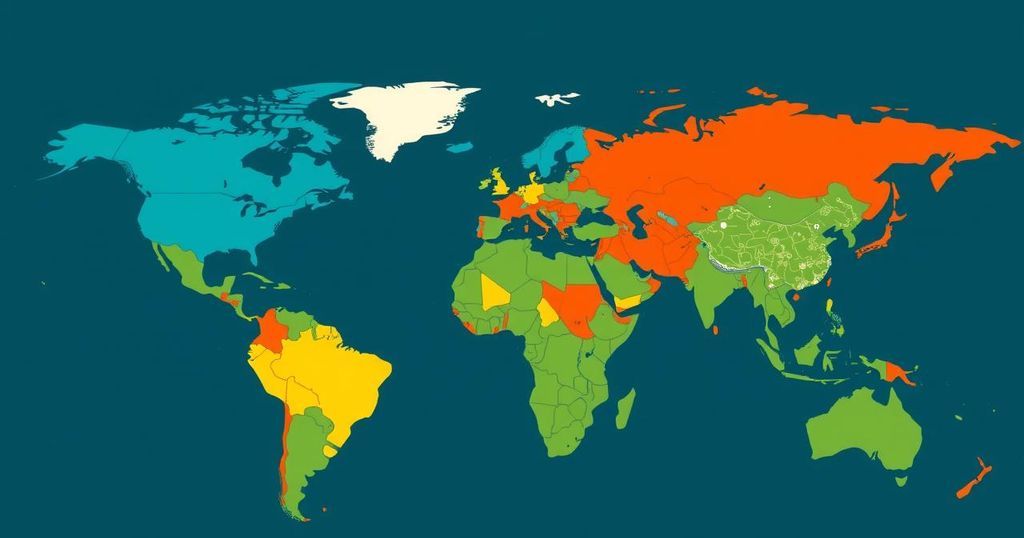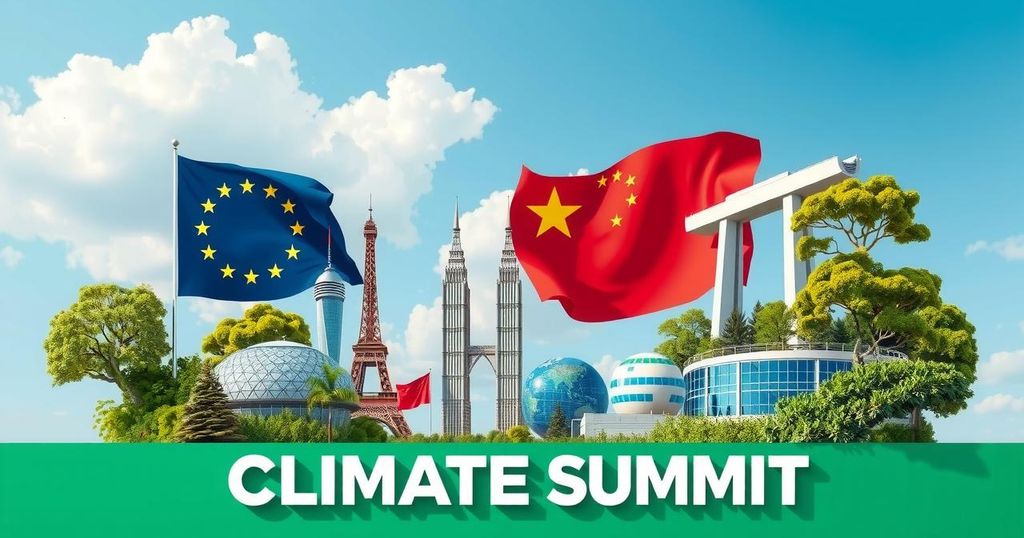Wealthy Nations Begin Compensating Poorer Countries for Climate Damages
Wealthier nations are initiating compensation for climate-related damages to poorer countries, exemplified by payments to families affected by Cyclone Freddy in Malawi. This ‘loss and damage’ funding aims to support those bearing the brunt of climate crises despite minimal emissions. At COP29, leaders are negotiating compensation frameworks as needs are projected to rise significantly, urging accountability from developed nations.
In the wake of natural disasters exacerbated by climate change, wealthier nations are beginning to compensate poorer countries for the damages incurred. Cyclone Freddy devastated southern Malawi in 2023, leading to severe destruction, including the loss of livelihoods for many subsistence farmers like Christopher Bingala. After the cyclone, Bingala received a payment of approximately $750 as part of a new initiative for “loss and damage” funding designed to assist those impacted by climate-related catastrophes.
This funding mechanism represents a significant step in addressing the financial challenges faced by low-income countries, which are disproportionately affected by climate change despite contributing minimally to global emissions.
A total of $720 million has been committed from countries including the European Union, the United States, and the United Arab Emirates, although experts anticipate this amount will be insufficient to meet the needs created by increasingly severe weather events.
At the ongoing COP29 climate summit in Baku, negotiations continue regarding the specifics of compensation owed to developing nations and how the funding will be allocated and utilized.
Prime Minister Philip Davis of the Bahamas articulated a pressing need for accountability from developed nations, stating: “We just hope that the global north and the nations whose economy is fueled by the emissions – they come to the plate and take up their responsibility to look at what they’re causing us.”
The situation in Malawi evidenced the system’s potential, as approximately 2,700 families received funds to rebuild their lives after Cyclone Freddy. Many have used the money to construct new homes or invest in essential resources for agricultural recovery. This pilot program, funded initially by the government of Scotland and executed by GiveDirectly, exemplifies the urgent need for adaptive financial strategies to protect vulnerable communities.
As the disasters intensify, experts estimate that loss and damage funding requirements could surge to $250 billion annually by 2030. Prime Minister Davis emphasized the need for proactive contributions from wealthier nations, highlighting the interconnectedness of climate crises. He asserted, “If they do nothing, they will be the worst for it. When my islands are swallowed up by the sea, then what do my people do? They’ll either become climate refugees or they’ll be doomed to a watery grave.”
The article addresses the emerging trend of higher-income countries providing financial compensation to lower-income nations for damages related to climate change. In light of increasingly severe weather events, such as Cyclone Freddy in Malawi, this new funding framework known as “loss and damage” is being developed to specifically support countries that are disproportionately affected by climate change despite their minimal contribution to global greenhouse gas emissions. The ongoing COP29 climate summit serves as a platform for negotiating these financial commitments and mechanisms.
In summary, the paradigm shift toward providing loss and damage compensation reflects a growing recognition of the responsibilities wealthier nations have in responding to the consequences of climate change faced by poorer countries. While initial funding efforts have begun, the scale of needs as projected by experts indicates that greater and more sustained support will be critical in mitigating the impacts of climate change on vulnerable communities. Ongoing discussions at international climate summits will be essential in shaping the future of this funding initiative.
Original Source: www.keranews.org




Post Comment